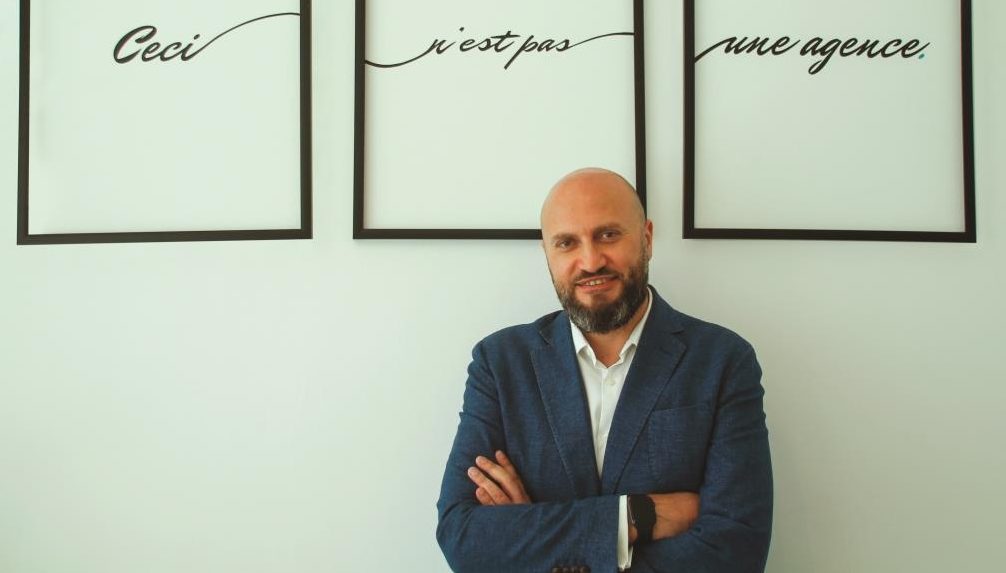 It’s 2020, and it seems old-hat to suggest that we might be living in a data-driven, “always-on”, digital world. If this is news to you, there are larger issues afoot than how to merge the classic agency skillset of creativity with the intricacies of gathering big data. On the other hand, if it’s no surprise that we’re living through one of the most exciting times to be an advertiser, then the challenge is something you’re more than familiar with.
It’s 2020, and it seems old-hat to suggest that we might be living in a data-driven, “always-on”, digital world. If this is news to you, there are larger issues afoot than how to merge the classic agency skillset of creativity with the intricacies of gathering big data. On the other hand, if it’s no surprise that we’re living through one of the most exciting times to be an advertiser, then the challenge is something you’re more than familiar with.
Today’s consumer spends more time consuming digital content than any previous generation spent doing just about anything other than breathing. The average human is blasted with 4,000-10,000 advertisements every single day. That’s one ad every 8.64 seconds. The sheer volume of content being consumed is well known to agencies the world over, and it creates one of the stickiest challenges modern agencies face: How the heck do we compete with that?
This is where the battle between creativity (how we engage with customers through words, visuals, emotions, etc.) and data (how we understand preferences, wants, desires, locations, platforms, etc.) kicks into high gear. Which is more important? Being more creative or getting better data?
The case for data
Where’s Wally? And did he see my meme? With an ad every 8.64 seconds, the challenge is really to understand when your prospect is going to be the most open, available and willing to be engaged during their day. And not only when, but where. And why. This is a challenge of understanding preference, platform and context.
No matter how amazing your content is, if it’s not seen, it’s not consumed. If it’s not consumed then it isn’t counted. And you had best believe your clients want it to count. So how do we make our content count? By mapping it to our specific target’s preferences for where, when and how they choose to consume it.
There is a flip happening in advertising. Consumers now control the brand more than the advertiser. Consumers decide whether a piece goes viral. Consumers determine how a brand feels and what it means. Less and less control of brand is being held by companies, and this makes being able to lock onto customer preferences with laser-like focus a must for brand owners and the agencies tasked with delivering ROI.
Data gives us those insights. It paints a picture of the consumer and maps their most likely behavioural patterns. Without data, creative will be hit or miss. And missing has big cost implications in the competitive agency landscape.
The case for creativity
Big data, small moments: the rise of a new type of creativity. Due to the accessibility of powerful data, agencies can better understand customer preferences, behaviours and actions. Big data creates big opportunities to build rich user profiles. But, on the flip side (and this is perhaps the most powerful aspect of data and the space where creativity blossoms in an always-on digital world), agencies can now target these patterns in real-time, creating micro-interactions. From big data, agencies can create rich, powerfully compelling small engagements.
Instead of targeting “everyone” with “everything”, the ability to interact in small moments means advertising can happen within their world. When they pass a shop they love, boom, 30 per cent off right now. They’ve watched branded content, but not taken action? Boom, personalised news feed content. Being able to engage consumers where they are, on the device they have, at the moment they are searching, watching, feeling, is opening unparalleled opportunities for creativity to blossom.
The trick for creatives now is to be able to create compelling narratives inside a consumer’s life. Touch in with them in those micro-moments. Create content that speaks directly to their needs, serve it where they are, keep it relevant and within the context of the platform they’re watching on. Because that is the new expectation. The bulk of consumers being targeted by agencies slide around the millennial/Z zone, and they’re consuming far less traditional media and aren’t watching scheduled shows. They tune in when they want, how they want, for as long as they want. And then they’re gone. To the next video, meme, channel or platform. Sometimes they even talk to other humans and enjoy activities that don’t involve their devices. But this is rare.
A beautiful friendship: when data and creativity coalesce
We’re living in an interesting time, when the world is getting both bigger and smaller simultaneously. Data gives us the map of the territory, and provides insight as to where we might best plant our flags. The job of creativity then is to capture fleeting attention, and to drive action in that location, time, platform or context.
These are incredibly exciting times, and agencies that can master the interaction of data and creativity to create compelling micro-moments will be able not only to engage slippery modern consumers but also to deliver big on client KPIs and bottom-line outcomes.
The key is to blend data with creative exploration in these moments. When data and creative form a positive feedback loop – with one informing and learning from the other – agencies can make strategic decisions on what works and what doesn’t. This optimisation process allows both data and creative to coalesce and evolve into something altogether new.










